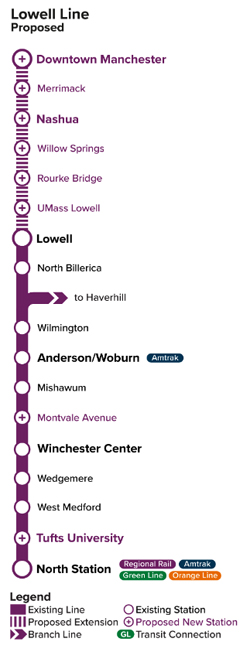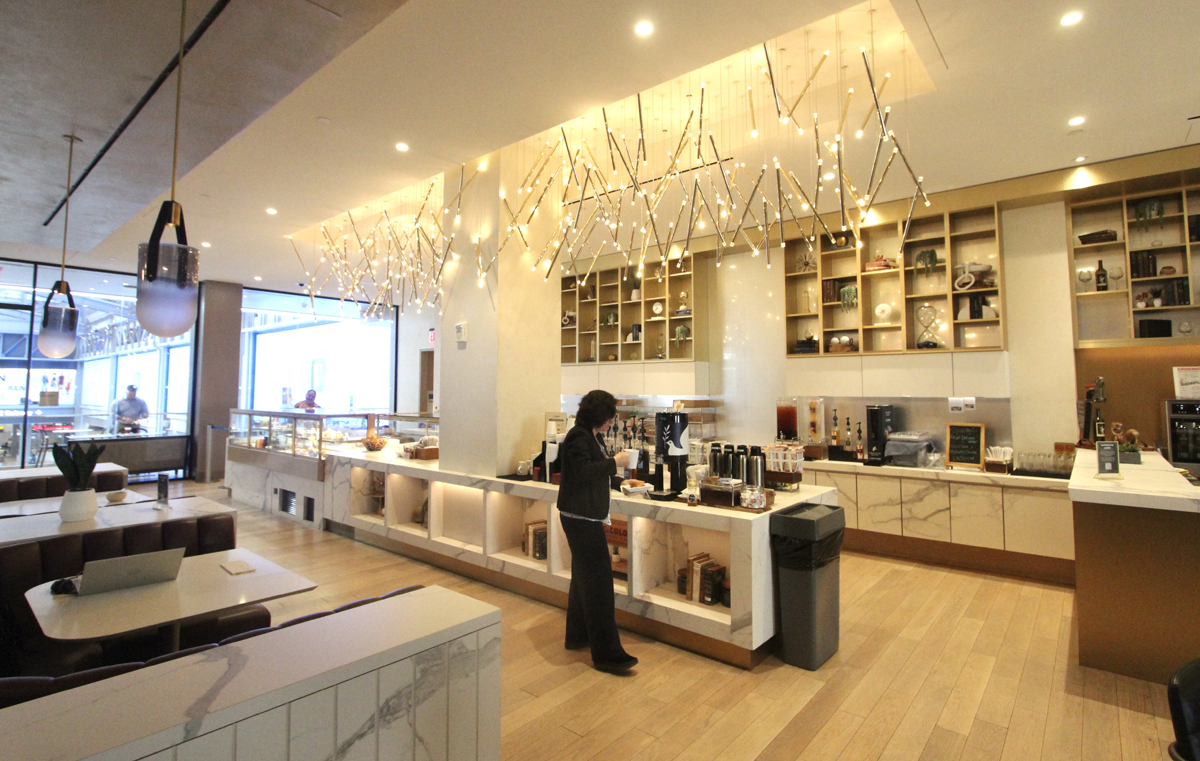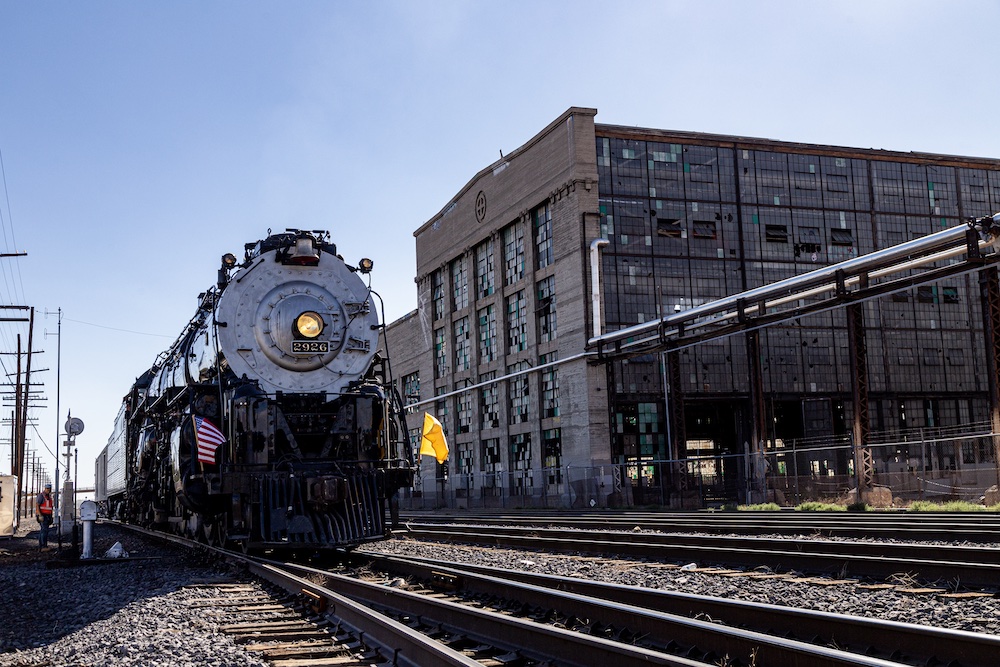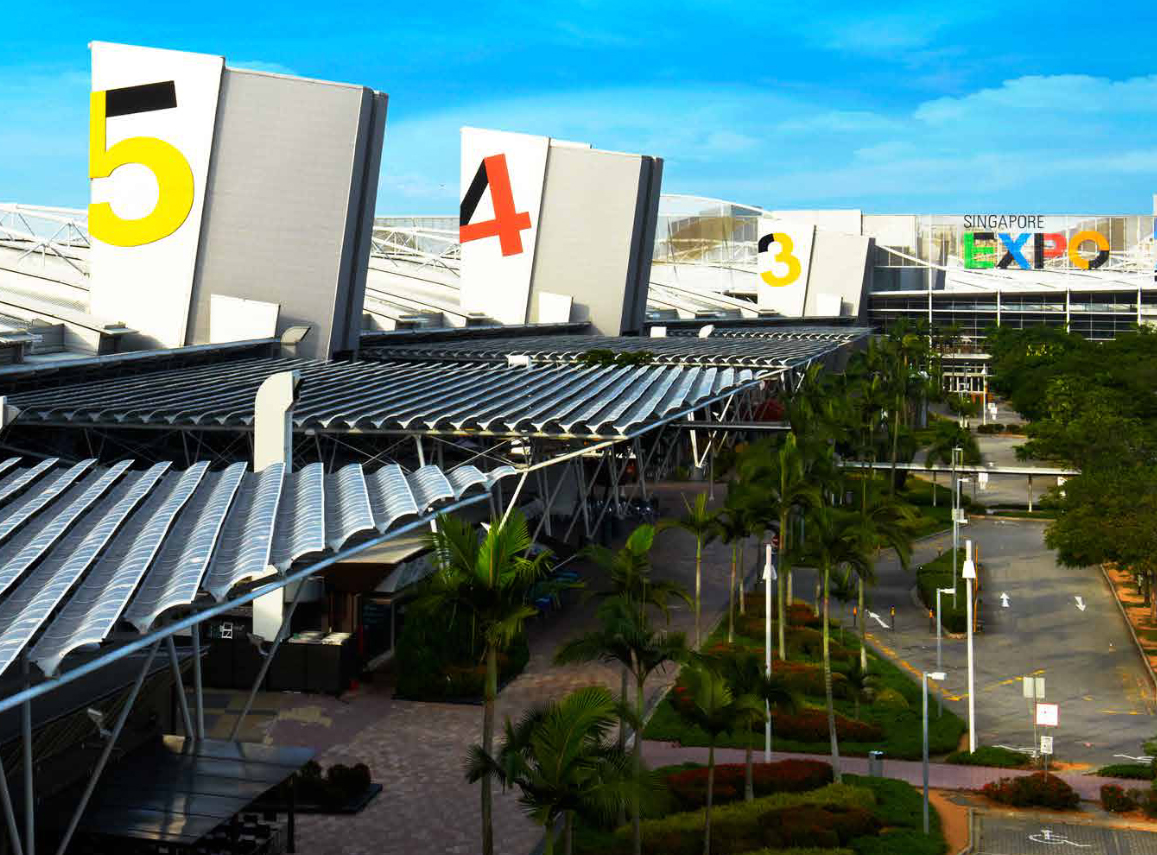
BOSTON — A transit advocacy group is calling for the Massachusetts Bay Transportation Authority’s commuter rail Lowell Line to be electrified, extended to Manchester, N.H., and otherwise modernized, offering regional rail service with frequent, all-day service.
The “Modernizing the Lowell Line” report from the group TransitMatters argues that electrified service, with upgraded track and high-level boarding, could allow trips from Lowell to Boston’s North Station in as little as 31 minutes, compared to the current 46 minutes, attracting new riders. (It also notes that when the line opened in the 1830s, nonstop trains made the trip in 45 minutes.)
The report estimates the cost of electrification and level-boarding improvements between Lowell and North Station at $340 million; it does not offer an estimate for the cost of the approximately 38-mile extension to Manchester, noting potential variables including track restoration and right-of-way expansion.
Prior to the COVID-19 pandemic, the Lowell Line was the fifth busiest of the MBTA’s commuter lines and the second busiest of those serving North Station, with average weekday ridership of more than 10,600. The report does not estimate how ridership might change with the proposed shorter travel times and expanded service.














The sponsor of the report, TransitMatters, in a 2021 publication states, “The case for electrification remains as strong today as ever. Modern electric trains, using subway-like electric multiple units (EMUs) rather than electric locomotives
hauling unpowered coaches, distribute traction along the entire length of the train.”
MBTA operates diesels under wire and has no EMU cars or electric locomotives. SEPTA and NJT operate both EMU’s and electric locomotive-hauled trains with diesel and dual-mode on NJT as well. The dual-modes operate diesel beyond the electrified zone and electric under wire. Acceleration is much better in electric mode.
Whether it’s financially feasible is nother question. Both SEPTA and NJT operate in tunnels and use underground stations. MBTA does not and is able to operate its service all-diesel.
Twenty two years. That’s how long the Providence line has been electrified but MBTA still runs diesel locomotives. My point? Folks come down from your Middlesex County cloud and join us in the real world.